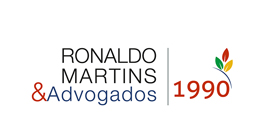Although the trial sessions of the Administrative Council of Tax Appeals have not been fully resumed, especially due to the current strike of tax auditors, the Panels of CARF Higher Court of Tax Appeals have reached tax decisions of great relevance to the interests of taxpayers, and in many of the judgments there was a change of understandings previously consolidated within the judging bodies of CARF, among which the following stand out:
In corporate crimes, joint and joint and several liability shall not be incurred by the partners, without the individualization of the conduct and proof of the causal link with the typified result.
The Brazilian legal system does not admit objective criminal liability; that is, to establish a case for tax crime (worded in Law # 8.137/1990) it is necessary to prove the following beyond a reasonable doubt: that the taxpayer has tried to evade, materiality and causal link with the result, for the offender must respond to the extent of the charge (Article 29 of the Brazilian Penal Code).
In the present case, several legal entities were found to have acted illegally transferring resources and creating fraudulent claims and expenses, which led to the action of the members of those legal entities to answer jointly and severally for the crime.
However, the Brazilian Supreme Court, in the judgment of Habeas Corpus HC # 8,258, affirmed that in corporate crimes: “it is essential that the charge describe, basically, how the defendants participated in the commission of the crime.” The characterization of a partner, manager or administrator status, without the description of specific conducts, is not enough to enable the accusatory charge, for it hinders the full right of defense.”
Hence, in the case in question, the causal link between the individualized conduct of the partners and the crime was not proven and, therefore, article 135 of the National Tax Code and attribution of joint liability in crime of the defendants is not applicable. (Case # 13819.723481/2014-66 – COBMETAIS COMERCIO DE METAIS E PLASTICOS LTDA)
Social security contributions shall not be incurred on Profit-Sharing Plan payments, even if the agreement was concluded before the assessment period.
Profit Sharing (PLR) does not integrate the percentage of contribution in the salary, as provided for in Article 28, § 9 of Law # 8,212/91, for it is related to goals and results and is paid in accordance with Law # 10,101/2000.
Inspection claimed that there was a violation of Law # 10,101/2000 because the taxpayer had not proven that the targets, results and deadlines had been set before the verification period, which would lead to the levy of social security contribution.
Nonetheless, the Counselors understood that social security contributions shall not be incurred on Profit-Sharing Plan (PRL) payments, even if the agreement was concluded before the assessment period, due only before payment. (Case # 15504.004615/2010-91 and BANCO RURAL S.A – in liquidation).
Due to the absence of a remunerative nature, hiring bonuses are exempt from social security contribution.
The Taxpayer paid the hiring bonus and did not include social security contributions in the calculation, but for the Inspection, the nature of said bonus is remunerative and should comprise the collection of such contributions.
However, it has been seen that the hiring bonus is not a consideration resulting from the rendering of service and for this reason it is not incurred by the levy of contributions because its nature is not remunerative. (Case # 16327.001665/2010-78 – BANCO PINE S/A).
Thus, it is clear that the aforementioned information is very relevant to taxpayers and we must be aware of such matters so that the understandings which are favorable to taxpayers are not changed due to changes in the composition of the collegiate, especially with the resumption of CARF (Administrative Council of Tax Appeals) activities in full, expected for the coming months.




